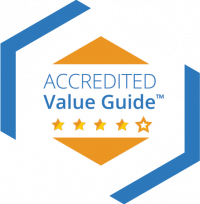This article was originally posted on 15th of December 2020 and has been updated.
What does it cost to sell a business? Well, it depends on your attitude to risk and the selling approach you choose. The most common professional costs of selling a business include legal fees, accountancy fees, and business broker fees. Then there are optional fees such as taking HR advice, as well as hidden admin costs.
When you decide to sell your business, you have three broad choices of approach:
- Oversee and take responsibility for the sale yourself,
- Do some of the work yourself and seek specialist support for some aspects,
- Enlist a business broker to represent you.
The approach you choose will determine how much a business sale will cost you. And making sure you get value for your money can be difficult. This is exactly what this post aims to help you with. It’s an honest summary of the advice we give to our clients – free of charge!
We’ll list the different professionals you may need to employ and outline their typical costs. We’ll also explain the type of work they’ll be doing, so you can consider if it’s something you might want to take on yourself.
The key question to ask yourself is this: “Do I have time to take on every aspect of the sale and the expertise to complete each one to a high standard?”
With decades of experience in brokering business sales, we’ve experienced all sorts of situations and challenges. We specialise in selling manufacturing, engineering and professional services businesses, so our recommendations may be skewed towards these sectors. If you operate in a different sector, you will still find the content valuable.
In short, by using professionals you get the best experience you can pay for, the deal moves much more smoothly, and you are still able to focus on running your business in the meantime.
Can you sell your business for free?
Selling your business is a popular business exit strategy and for most people a once-in-a lifetime experience. While it is possible to take on aspects of managing the sale process yourself, some professions are essential to completing a business sale within legal compliance and financial regulation.
It is highly unlikely that you would be able to sell a business without incurring professional fees. From a buyer perspective, a sale that doesn’t involve a solicitor or an accountant would set off warning bells.
The professionals we discuss in this article do what they do on a daily basis. They know how to plan and get things done quickly, in compliance with regulations and whilst providing the best advice possible.
Common fees for selling a business
Let’s start with what we know best – business brokers, the professionals we consider essential for selling a business.
Business broker fees for selling a business
A business broker will provide services before, throughout and after the sale of your business. These include:
- Realistic valuation and advice/coaching on how to increase it
- Marketing the business to find buyers
- Support with collating documents
- Support in meetings, deal negotiations and transition to new ownership.
Learn more about what you get from Uscita business brokers
Let’s take a look at the fees charged.
There are a wide selection of broker services out there to choose from with two common fee structures:
- The first type of broker charges a marketing fee up front when taking on a new client. This can vary depending on the size of business, complexity of the deal, and size and reputation of the business broker. This fee can start as low as £500 and increase to £40,000 for large finance firms acting as transition agents.
On top of the initial fee, you will also pay commission: a percentage of sale value paid on completion. This ranges from 3%-5% for most brokers.
- The second category of broker will waive the instruction fees, however because this means taking on greater risk and a delay to their compensation, they will charge higher rates of commission. You can expect to pay up to 12% of the final value of the sale.
Whichever broker fee structure you choose, the total fees you pay will usually end up at a similar level. It’s the way the instruction and completion fees are structured that will vary.
For most deals, option one is the most cost-effective. Of course, there may be situations where you would lean towards option two, for example when the business is in financial difficulty and poor cashflow prevents you from paying an initial marketing fee.
Option two may also be the preferred option for businesses in faltering sectors where the chance of finding a suitable buyer is low. We saw this situation when a number of independent financial advisers were affected by new data transparency regulations 2012. Non-compliance made many of these businesses worthless and some chose to close down instead of implementing the changes.
Before you sign any contracts, check the cancellation clauses. If a broker appears to be doing something for less than cost, they may be set to earn fees when you try to leave.
The main thing is to find the deal that’s right for you and your business situation. Small businesses won’t want to pay thousands on sign up, but if you are a multi-million sized business, you may consider the fees justified. Find the broker you trust to do the job you need doing in your price range.

Book a discovery call to enquire about our fees and services.
Solicitor fees for selling a business
A solicitor will support you with the legal aspects of the sale, such as:
- Resolving property ownership and lease details
- Transferring intellectual property rights
- Concluding shareholdings.
Choosing the right solicitor will save you time and money. The solicitor you want to engage when selling your business is a commercial solicitor. Their hourly rate may be high, but it will pay off in the long term.
If your business is small and simple, you might agree a fixed fee structure with your solicitor to provide certainty over costs. For larger, more complex businesses, legal scrutiny will be more detailed and intense. For this you can expect to pay an hourly rate and receive a hefty final invoice.
The average sales we handle have fees ranging between £8,000 and £25,000. These reflect the specific combination of services required.
Being up front with your solicitor at the point of quoting for the work will lead to a more accurate estimate of costs and fewer surprises when the bill arrives. Thorough preparation will help to reduce costs. Having documents filed and in order, e.g. shareholder agreements, website domain ownership, employee contracts, means your solicitor won’t have to chase you for information and incur extra fees.
Accountant fees for selling a business
When it comes to selling your business, you may expect your existing accounting firm to support you through the process. This is an ideal time to evaluate the experience and the service you receive.
- Do they simply produce your year-end results without additional value added benefits?
- How long do they take to do this or to get back to you on other matters?
Don’t be afraid to switch firms to a more experienced or responsive firm if it will benefit your sale.
The main consideration here isn’t an accountant’s knowledge and ability, more their capacity to work to a tight timeframe. This is vital in every business sale.
Your accountant will need to produce interim trading figures through your sale process. Once an offer has been agreed, accountants will be part of due diligence and have to respond to some very specific questions. They also need to become your personal tax adviser, so you don’t overpay or underpay to HMRC on the sale funds you receive.
At the point of sale, accountants will have a deadline to produce final completion accounts for the business under your ownership. If they can’t, there’s a risk your buyer may look to claw back some sale funds from you.
As a rough budget, you can expect the fee you pay your accountant to produce your annual accounts to increase threefold. And as with solicitors, the more detail you can give them ahead of time, the more accurate quote you will receive.
Optional fees for selling a business
We consider a business broker, solicitor and accountant to be essential roles in a business sale. There are also some professionals it would be wise to contact before you sell. These depend on your business sector, size and company structure. Here are the specialisms to consider in your search.
Please get in touch if you are unsure which fees may apply to your business sale.
HR fees for selling a business
Whether your sale is subject to TUPE or not, business buyers are increasingly aware of their responsibilities to employees.
Buyers expect businesses to have contracts of employment and a staff handbook in place. If you’re not sure you’ve got maternity pay, holiday entitlement or disciplinary procedure right, seeking advice from an HR professional before you sell is a good idea.
Get these documents in order, and it becomes a tick in a buyer’s box when you do sell.
Many HR companies have a menu of costs depending on the scope of the work. E.g. HR Dept is a nationwide franchise with a menu of service options starting from around £95 pm.
CEPC fees for selling a business
In certain circumstances, i.e. when you rent or sell your business premises, it is a legal requirement to hold a valid CEPC certificate (Commercial Energy Performance Certificate). The cost has come down since its launch and should be under £500 for most premises.
The certificate is valid for 10 years, and we recommend getting it done early. You can find a list of local providers on the gov.uk website.
Asbestos and Legionella report fees for selling a business
If your business is responsible for maintaining premises, a buyer will want to know they aren’t inheriting problems for the future. This is especially true for manufacturing businesses.
If you know your building has asbestos within its construction, get your report up to date. It’s a similar situation if you know your business is susceptible to legionella regulations. Review your reports regularly as outdated reports can derail a sale.
Costs will vary but contact a local expert for a quote. The cost for renewing compliance certificates will be much lower than the cost of removing asbestos or upgrading water systems. Most companies will offer a free consultation to produce an accurate schedule of work.
Additional fees for selling a business: licences and permissions
Lack of important permissions can cause a sale to fall through. E.g. In the case of a brewery that operated for 23 years without council permission – and they were unable to sell their business.
Business owners must periodically check that licences and permissions are up-to-date and accurate. As your business evolves in response to customer demand, you might end up providing a service outside your original licensing permissions.
Other licences and permissions to check include waste removal licences, music licences, industry standards, and ISO accreditation.
If a buyer discovers expired permits, they will be unimpressed and may alter their offer as a result.
With such a variety of licences available, costs vary greatly. Make sure you stay on the ball with regular reviews of your documentation.
Value from using professionals to sell your business
In our experience, a solicitor, accountant and professional business broker are essential to completing a business sale, while others may be used on a case-by-case basis. The costs for your broker, solicitor and accountant will mostly come out of the sale proceeds when the deal completes. Planning ahead means you can absorb the fees for documentation, business advice, and licences into the overheads of the business ahead of a sale.












